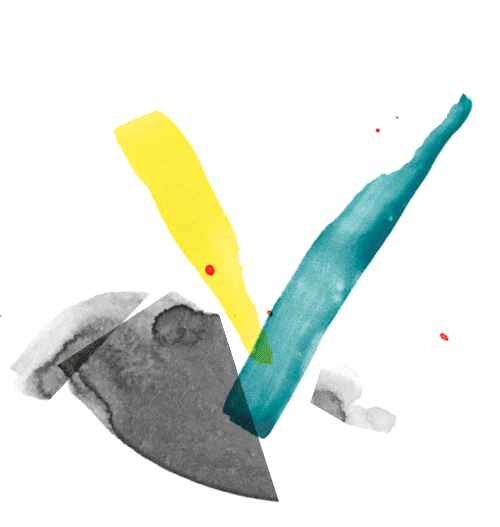

Sign up for our newsletters. You can change the settings or unsubscribe at any time.
Thank you for your subscription. We have sent you an e-mail with a confirmation link.


exp. 1
exp. 2
exp. 3

Castiel Vitorino Brasileiro
Venue: Gropius Bau
Castiel Vitorino Brasileiro
Born 1996 in Vitória, BR – lives and works in Vitória and São Paulo, BR
Castiel Vitorino Brasileiro develops survival and healing strategies for bodies in constant flight, those of the Black and trans populations targeted by a state-sanctioned politics of death. Based on practices adopted from psychology and Afro-Brazilian syncretic religions, her work looks to resignify traumas and turn them into instruments of self-care. It fosters freedom from the violence of procedures authorized by state and capitalist health systems. Her practice also involves organizing collective situations for the purpose of sharing healing practices.
In No antiquário eu negociei o tempo [In the Antique Shop I Negotiated Time, 2018], she poses for a series of photographs that show her bare-chested, looking at the camera, her face covered by masks. The masks were found in an antique shop in Santos, Brazil, where they were advertised as African, even though they had been made with papier-mâché, fur, and wood during a workshop led by a friend of the shop owner. By using these objects on her own body, the artist exposes colonial discourses, foregrounding the exoticization of African cultures and the commercialization of the past. The practices of collecting and the curiosity cabinets that became popular in the sixteenth and seventeenth centuries marked the beginning of a perverse justification of colonial looting and theft—giving rise to the modern museum. They cultivated the symbolic violence that defined the Other as difference and formulated the concept of race. They also created an ontological trap for the Black body, institutionalizing imagery of eroticization and control. Vitorino Brasileiro’s work presents her body—a Black, female body with male sexual organs—as a crossroads for knowledges. Hers is a body capable of incorporating spirits and thus able to liberate those that the West has classified in order to entrap.
Beatriz Lemos
El primer nueva corónica y buen gobierno
Felipe Guamán Poma de Ayala
Chronicle
III: La familia son quiénes se alegran con nuestros actos diarios. Detrás de las curadoras de la XI
María Berríos, Agustín Pérez Rubio
Conversation
Grupo Experimental de Cine en acción
Gabriel Peluffo
Drawing
II: La Solidaridad va Más Allá de un Concepto. Entre las Curadoras de la XI Berlin Biennale
Lisette Lagnado, Agustín Pérez Rubio
Conversation
Teatro da Vertigem
Monograph
St Sara Kali George
Delaine Le Bas
Soundscape
By using this website you agree to the use of cookies in accordance with our data privacy policy.

Castiel Vitorino Brasileiro
Venue: Gropius Bau
Castiel Vitorino Brasileiro
Born 1996 in Vitória, BR – lives and works in Vitória and São Paulo, BR
Castiel Vitorino Brasileiro develops survival and healing strategies for bodies in constant flight, those of the Black and trans populations targeted by a state-sanctioned politics of death. Based on practices adopted from psychology and Afro-Brazilian syncretic religions, her work looks to resignify traumas and turn them into instruments of self-care. It fosters freedom from the violence of procedures authorized by state and capitalist health systems. Her practice also involves organizing collective situations for the purpose of sharing healing practices.
In No antiquário eu negociei o tempo [In the Antique Shop I Negotiated Time, 2018], she poses for a series of photographs that show her bare-chested, looking at the camera, her face covered by masks. The masks were found in an antique shop in Santos, Brazil, where they were advertised as African, even though they had been made with papier-mâché, fur, and wood during a workshop led by a friend of the shop owner. By using these objects on her own body, the artist exposes colonial discourses, foregrounding the exoticization of African cultures and the commercialization of the past. The practices of collecting and the curiosity cabinets that became popular in the sixteenth and seventeenth centuries marked the beginning of a perverse justification of colonial looting and theft—giving rise to the modern museum. They cultivated the symbolic violence that defined the Other as difference and formulated the concept of race. They also created an ontological trap for the Black body, institutionalizing imagery of eroticization and control. Vitorino Brasileiro’s work presents her body—a Black, female body with male sexual organs—as a crossroads for knowledges. Hers is a body capable of incorporating spirits and thus able to liberate those that the West has classified in order to entrap.
Beatriz Lemos
III: La familia son quiénes se alegran con nuestros actos diarios. Detrás de las curadoras de la XI
María Berríos, Agustín Pérez Rubio
Conversation
Struggle as Culture: The Museum of Solidarity, 1971–73
María Berríos
Essay
Weaving Solidarity
Renata Cervetto and Duygu Örs
Q&A
A Moment of True Decolonization / Episode #6: Sinthujan Varatharajah. Constructing the Tamil Eelam State
The Funambulist / Sinthujan Varatharajah
Podcast
A World Without Bones
Agustín Pérez Rubio
O Bailado do Deus Morto
Flávio de Carvalho
Play
By using this website you agree to the use of cookies in accordance with our data privacy policy.

Castiel Vitorino Brasileiro
Venue: Gropius Bau
Castiel Vitorino Brasileiro
Born 1996 in Vitória, BR – lives and works in Vitória and São Paulo, BR
Castiel Vitorino Brasileiro develops survival and healing strategies for bodies in constant flight, those of the Black and trans populations targeted by a state-sanctioned politics of death. Based on practices adopted from psychology and Afro-Brazilian syncretic religions, her work looks to resignify traumas and turn them into instruments of self-care. It fosters freedom from the violence of procedures authorized by state and capitalist health systems. Her practice also involves organizing collective situations for the purpose of sharing healing practices.
In No antiquário eu negociei o tempo [In the Antique Shop I Negotiated Time, 2018], she poses for a series of photographs that show her bare-chested, looking at the camera, her face covered by masks. The masks were found in an antique shop in Santos, Brazil, where they were advertised as African, even though they had been made with papier-mâché, fur, and wood during a workshop led by a friend of the shop owner. By using these objects on her own body, the artist exposes colonial discourses, foregrounding the exoticization of African cultures and the commercialization of the past. The practices of collecting and the curiosity cabinets that became popular in the sixteenth and seventeenth centuries marked the beginning of a perverse justification of colonial looting and theft—giving rise to the modern museum. They cultivated the symbolic violence that defined the Other as difference and formulated the concept of race. They also created an ontological trap for the Black body, institutionalizing imagery of eroticization and control. Vitorino Brasileiro’s work presents her body—a Black, female body with male sexual organs—as a crossroads for knowledges. Hers is a body capable of incorporating spirits and thus able to liberate those that the West has classified in order to entrap.
Beatriz Lemos
Maternidades subversivas
María Llopis
Monograph
Género y colonialidad en busca de claves de lectura y de un vocabulario estratégico descolonial
Rita Segato
Essay
Touching Feeling. Affect, Pedagogy, Performativity
Eve Kosofsky Sedgwick
Monograph
A World Without Bones
Agustín Pérez Rubio
Solidarity and Storytelling. Rumors against Enclosure
María Berríos
Essay
I: Junto a las curadoras de la XI Berlin Biennale for Contemporary Art
Renata Cervetto, Lisette Lagnado
Conversation
By using this website you agree to the use of cookies in accordance with our data privacy policy.

Castiel Vitorino Brasileiro
Venue: Gropius Bau
Castiel Vitorino Brasileiro
Born 1996 in Vitória, BR – lives and works in Vitória and São Paulo, BR
Castiel Vitorino Brasileiro develops survival and healing strategies for bodies in constant flight, those of the Black and trans populations targeted by a state-sanctioned politics of death. Based on practices adopted from psychology and Afro-Brazilian syncretic religions, her work looks to resignify traumas and turn them into instruments of self-care. It fosters freedom from the violence of procedures authorized by state and capitalist health systems. Her practice also involves organizing collective situations for the purpose of sharing healing practices.
In No antiquário eu negociei o tempo [In the Antique Shop I Negotiated Time, 2018], she poses for a series of photographs that show her bare-chested, looking at the camera, her face covered by masks. The masks were found in an antique shop in Santos, Brazil, where they were advertised as African, even though they had been made with papier-mâché, fur, and wood during a workshop led by a friend of the shop owner. By using these objects on her own body, the artist exposes colonial discourses, foregrounding the exoticization of African cultures and the commercialization of the past. The practices of collecting and the curiosity cabinets that became popular in the sixteenth and seventeenth centuries marked the beginning of a perverse justification of colonial looting and theft—giving rise to the modern museum. They cultivated the symbolic violence that defined the Other as difference and formulated the concept of race. They also created an ontological trap for the Black body, institutionalizing imagery of eroticization and control. Vitorino Brasileiro’s work presents her body—a Black, female body with male sexual organs—as a crossroads for knowledges. Hers is a body capable of incorporating spirits and thus able to liberate those that the West has classified in order to entrap.
Beatriz Lemos
„Klaus Eckschen: Hörspiel“
Die Remise
Hörspiel
Solidarity and Storytelling. Rumors against Enclosure
María Berríos
Essay
Struggle as Culture: The Museum of Solidarity, 1971–73
María Berríos
Essay
Undocumented Rumours and Disappearing Acts from Chile
María Berríos
Essay
I: Junto a las curadoras de la XI Berlin Biennale for Contemporary Art
Renata Cervetto, Lisette Lagnado
Conversation
O Bailado do Deus Morto
Flávio de Carvalho
Play
By using this website you agree to the use of cookies in accordance with our data privacy policy.
By using this website you agree to the use of cookies in accordance with our data privacy policy.




